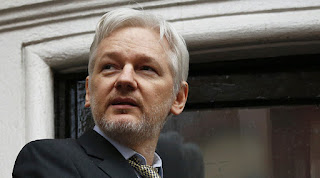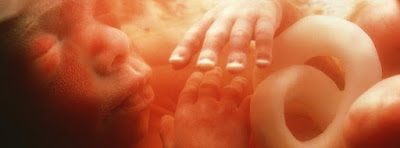Caution: somewhat graphic sexual description below
‘I do not forgive or forget’: Assange responds
after Swedish prosecutors drop rape case
© Neil Hall
WikiLeaks founder Julian Assange says he will not “forgive or forget” being “slandered” and “detained” for seven years without charge.
“Detained for 7 years without charge while my children grew up and my name was slandered. I do not forgive or forget,” Assange tweeted.
Assange is due to give a public statement shortly after rape allegations against him were dropped by Swedish prosecutors on Friday.
Swedish prosecutors said as “all options of moving the investigation forward are now exhausted” and “in light of the views expressed by the [Swedish] Supreme Court on the proportionality of remanding someone in absentia” it was no longer “proportional” to maintain Assange’s arrest warrant.
Sweden’s director of public prosecution, Marianne Ny, said: “I don’t want to assign blame and responsibility to any particular person for this. I must note however that the reason for this [investigation ending] is that Julian Assange has kept himself away from us for so long.”
Of course, you wouldn't guarantee not to extradite him to America, and it's not like you didn't know where he was. You were attempting to do America's bidding. Your case was very flimsy to begin with charging him for having sex with someone who was naked and in bed with him and with whom he had already had sex several times.
Breakdown of the rape allegations
The crux of the rape allegations against Assange stem from two sexual encounters and the WikiLeaks’ founder’s reluctance to use condoms during them.
Assange had sex with two women, dubbed ‘AA’ and ‘SW,’ when he was in Sweden in 2010. The two women wanted Assange to get an STI test because they suspected he had unprotected sex with both of them.
The two women went to a police station to ascertain whether they could force Assange to take a HIV test, sparking an investigation that has plagued Assange for seven years.
‘SW’
Assange had what he described as “consensual” sex with ‘SW’ on August 16, 2010, after meeting her at a talk in Stockholm two days before. The two went to the cinema on the day they met, where they kissed.
“We had consensual sexual intercourse on four or five occasions,” Assange said. “Her words, her expressions and her physical reactions made it clear to me that she encouraged and enjoyed our interactions.”
According to SW’s police interview, after the two had dozed off one night, “she awoke and felt him penetrating her.” She asked if he was wearing a condom and said, “You better don't have HIV.” ‘SW’ texted a friend on August 18 saying, “I was half asleep.”
“He was already inside her and she let him continue,” the police interview reads. “She didn’t have the energy to tell him one more time. She had gone on and on about condoms all night long.”
On August 20, Assange spoke to ‘SW’ who said she was at the hospital and wanted him to meet her there to get tested for STIs, so that she wouldn’t have to worry while she was awaiting for her own results. “HIV, for instance, needs months to show up,” Assange explained.
He told her he couldn’t do that until the next day. “She said that it was normal in Sweden to go to the police to get advice about STDs and that if I didn't come down to the hospital she would go to the police to ask whether I could be forced to get tested.”
After agreeing he would meet her the next day to be tested, Assange was surprised to find out he had later been accused of rape.
According to police records of SW’s phone seen by Assange’s lawyers, ‘SW’ wrote from the police station that she “did not want to put any charges on Julian Assange,” but that the police were “keen on getting their hands on him.”
The next day she wrote she “did not want to accuse” Assange “for anything” and that it was the “police who made up the charges (sic).”
‘AA’
Assange stayed at AA’s home when he was in Stockholm, before he had sex with SW.
The two had sex, which ‘AA’ said was “so fast” and that Assange was rough and impatient. She said she wanted to reach for a condom but Assange wouldn’t let her. She told him she wanted him to wear a condom and then he let her reach for it, and wore it.
However, ‘AA’ said she didn’t see any semen in the condom and suspected Assange had broken it during sex.
Assange stayed with ‘AA’ for a few more nights and he attempted to come on to her again, including one incident where he rubbed against her in the bed they shared, AA’s police interview says, but they had no further sexual relations.
‘AA’ said she went to the police largely to support ‘SW.’
“Anna states that she had consented to have sex with Assange, but that she would not have done so if she had known that he was not wearing a condom,” the police interview reads. “Anna does not desire any contact with a crime victims service, but will get back to us if she feels the need.”
It seems likely that neither woman tested positive for HIV or any other STD, or that would be part of the story.
It's shameful that you, Sweden, have been so doggedly determined to bring Assange to 'justice' for his 'rape' of a Swedish woman and yet you are daily sacrificing Swedish women and girls to Muslim migrants on the altar of political correctness and stupidity.
Assange’s lawyer Per Samuelsson said his client was now considering suing Sweden.
“It’s not about money but redress,” Samuelson told news agency TT.
He added that Assange would eventually try to move to Ecuador.
Assange sought political asylum in the Ecuadorian Embassy in London in 2012 and has been living there since, fearing the Swedish investigation would result in him being extradited to the US over leaked military documents and diplomatic cables.
Assange, 45, has always denied the rape allegations made against him.
It remains unclear how Friday’s development will affect Assange’s risk of being extradited to the US if he leaves the embassy and is arrested. The Metropolitan Police in London say they will still arrest Assange over a lesser charge of skipping bail in 2012 when he sought asylum.
Prime Minister Theresa May said any decision about Assange’s arrest or otherwise is an “operational matter” for police.
That's helpful! Great leader!







